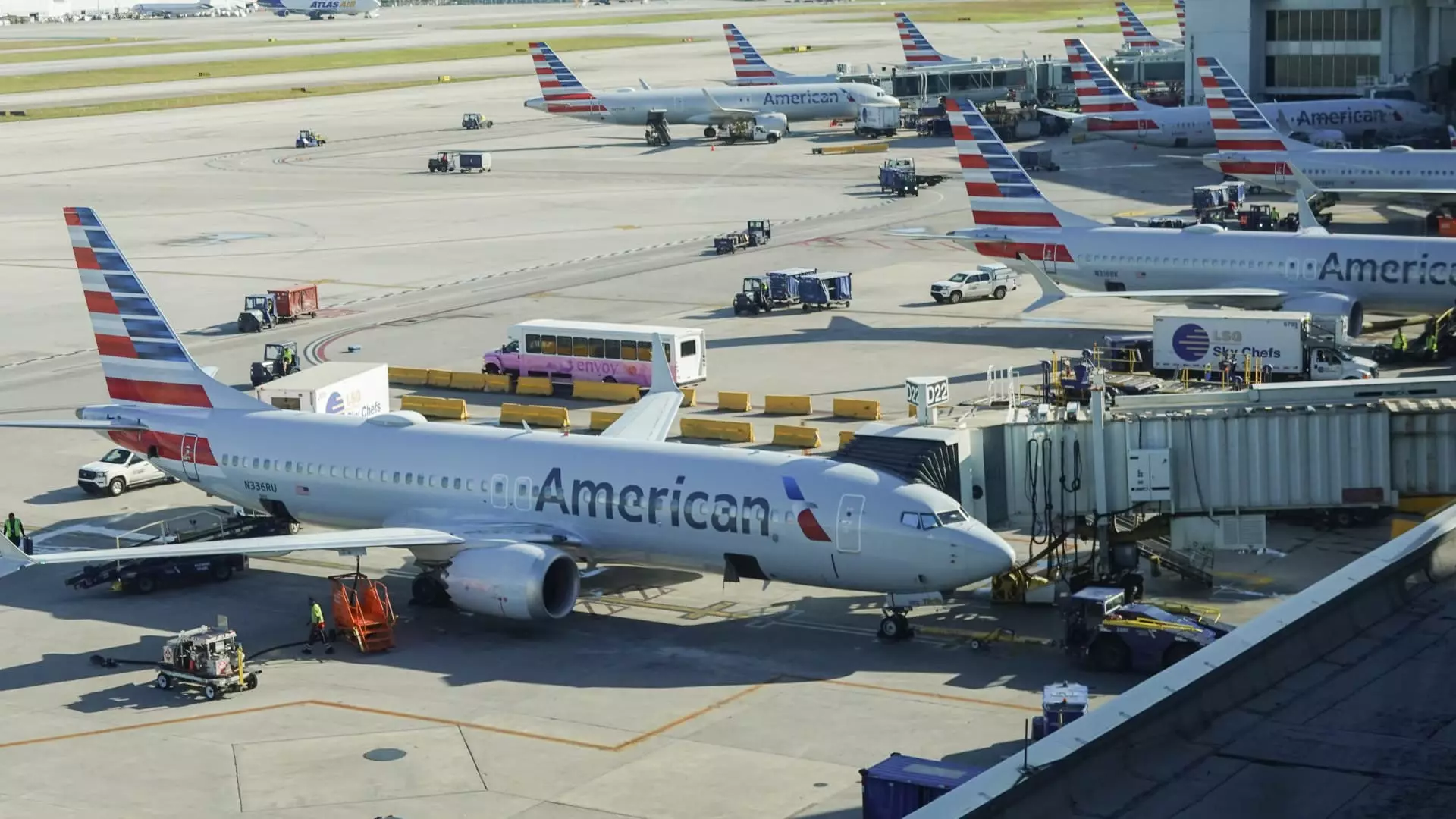On a chaotic Tuesday morning, American Airlines grounded all its flights across the United States due to a significant technical glitch. This disruption occurred during a peak travel season, as airlines anticipated record passenger numbers over the holiday period. The grounding, although resolved within less than an hour, served as a stark reminder of the fragility inherent in the airline industry’s complex technological infrastructure.
According to reports, the technical issues encountered were linked to a platform provided by an outside vendor. This system plays a crucial role in managing vital data such as an aircraft’s weight and balance—information that pilots need to ensure a safe departure. When American Airlines became aware of the malfunction, they proactively requested a ground stop from the Federal Aviation Administration (FAA), a move that is standard protocol during such disruptions. By 7:55 a.m. ET, flights resumed operations, and American Airlines issued a public apology for the inconvenience. What could have spiraled into a larger crisis was mitigated through rapid response and communication, showcasing a commendable level of crisis management.
The grounding incident raises significant questions about the resilience of airline operations, particularly as air travel continues to rebound post-pandemic. Failures in critical technology systems have dramatic ripple effects in an industry defined by tight schedules and high passenger volumes. American Airlines’ recent stoppage echoes past disruptions, such as those experienced by Southwest Airlines during the 2022 holiday season and Delta Airlines’ challenges in recovering from cyber incidents. These events highlight that despite advancements in technology and a focus on operational efficiency, airlines remain vulnerable to unexpected failures in their networks.
The swift action taken by American Airlines to resolve the issue reflects an awareness of the stakes involved. By quickly activating a ground stop, the airline not only managed to maintain safety at the origin airports but also prevented greater chaos at destination locations that could be overwhelmed by arriving flights. Fortunately, American Airlines indicated that none of its flights were canceled as a result of this technical failure, alleviating some customer distress. However, the incident serves as a reminder that even minor technical disruptions can have a cascading effect on travel plans, particularly during busy holiday periods.
As the aviation industry gears up for a bustling travel season, the need for robust and reliable technological systems becomes increasingly evident. American Airlines, like many of its competitors, must continue to evaluate and reinforce their critical operational platforms to avoid the pitfalls of casual technological reliance. While Tuesday’s ground stop was resolved without substantial fallout, the incident is a clarion call for the airline sector to prioritize infrastructure upgrades and ensure such disruptions become a relic of the past, especially as air travel demand surges during the holidays.

